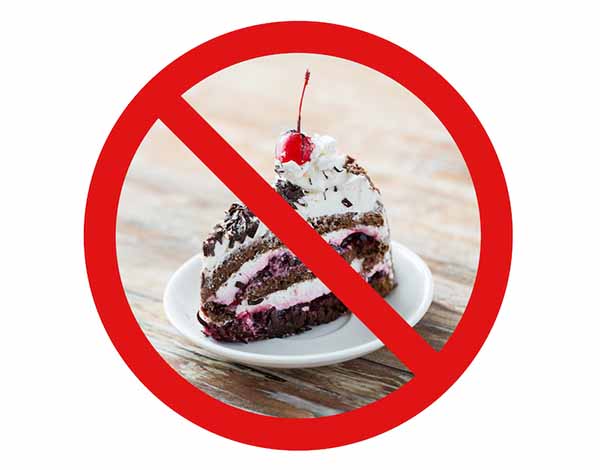By Jeff Vircoe
Scott Peck knew it. So did Bill Wilson. Hey, even Forrest Gump got it.
Life is no piece of cake, and finding tools to get through the difficult moments is super-important. Almost anyone with time away from that drink, that pipe or that dice throw will assure you that the concept of “This too shall pass” is one of those helpful tools.
When one accepts that problems are just part of the journey, life gets more doable.
Peck, the late psychiatrist and best-selling author, opened his smash hit 1978 book, The Road Less Traveled, with words that remind us that difficulties are a necessary part of life.
“Life is difficult. This is a great truth, one of the greatest truths. It is a great truth because, once we truly see this truth, we transcend it. Once we truly know that life is difficult – once we truly understand and accept it – then life is no longer difficult. Because once it is accepted, the fact that life is difficult no longer matters.”
A Zen proverb reminds people to carry on no matter how bleak things may look.
“This too shall pass. Until then, fetch wood, carry water, walk the earth.”
People in recovery understand that. As they clear away the wreckage of the past and face new, unpredictable life events, building time in sobriety proves that, once you have been through something challenging, it is in your bank of memories and that strength, that scar tissue of resolve, can be accessed to get through the next hurdle.
“When I’m in a jackpot and feel like I’m going to explode, I try to remember the details of the last jackpot I was in. Surprisingly, the details are vague. It wasn’t the end,” says Dave C., who sobered up in June 1987. “I downshift and continue, knowing that I will look back and this dilemma will be vague, too.”
Bill Wilson knew this well. The founder of Alcoholics Anonymous and a man who suffered through nearly 20 years of deep depression after sobering up, Wilson urged members of the fellowship to be prepared for the long haul.
“It is not probable that we are going to be inspired at all times,” he wrote on page 87 in the Big Book of Alcoholics Anonymous when he was barely three years sober.
By 15 years sober, understanding the part he plays in problems, Wilson wrote this in the 12 Steps and 12 Traditions book on page 48-49: “Pride, leading to self-justification and always spurred by conscious or unconscious fears, is the basic breeder of most human difficulties, the chief block to true progress.”
Of course, the slogan “This too shall pass” does not have its roots in recovery. It merely makes sense for a group of people prone to obsession, delusional thinking and self-pity to come to terms with the facts of life if they are to remain sober.
Forrest Gump, the lead character of the 1994 Academy Award winning smash hit of the same name, reminds us all in a reflective moment that his “Mom always said life was like a box of chocolates. You never know what you’re going to get.”
Timber Hawkeye, author of the international bestselling book, Buddhist Boot Camp, put it this way:
“You can’t calm the storm … so stop trying. What you can do is calm yourself. The storm will pass.”
It’s a milleniums-old belief.
In the first of Buddhism’s Four Noble Truths, the Buddha meditated on the truth of suffering. He came to the conclusion that all life has its suffering, pain, and misery. Of course, he went much deeper, determining the origins and paths to solutions. And, though it may not be at all traced to Buddhism, as a calming, grounding technique in times of difficulty, “This too shall pass” makes a whole lot of sense.
One man in Qualicum Beach, B.C. puts it this way:
“I use that expression when I feel my unhappiness and unease are a permanent affliction usually brought on by circumstances that are stressful or lonely,” says Cash, who sobered up in 2001. “Sometimes I think that I will never get out of my malaise, and then I remember back to the darkest days of alcoholism when a miserable death would have been permanent. And how much sunlight and wonderful life I have had since that deep bottom. I think of that and say to myself, “And this too shall pass.”
Indeed, the idea of remembering progress made to date seems to be at the basis of the slogan.
“Whatever you’re feeling, it will eventually pass. You won’t feel sad forever. At some point, you will feel happy again. You won’t feel anxious forever. In time, you will feel calm again. You don’t have to fight your feelings or feel guilty for having them. You just have to accept them and be good to yourself while you ride this out,” writes Lori Deschene, founder of Tiny Buddha.com.
Another spiritual teacher, Mooji, who hails from Jamaica, puts it this way:
“Feelings are just visitors. Let them come and go.”
The American social psychologist, Harvard’s Daniel Gilbert, PhD, reminds students and readers of his books that humans are not as weak as we sometimes think we are.
“Rather than being the fragile flowers that a century of psychologists have made us out to be, most people are surprisingly resilient in the face of trauma,” Gilbert writes in Stumbling on Happiness.
He says his research has proven that people typically undersell their own abilities to deal with calamities, being unaware of the strength of their “psychological immune system.”
Those who have walked the walk of sobriety for years remind us that life as a sober person was never promised to be easy. It is about breaking things down to manageable pieces, easy and hard, and showing up with the best possible attitude, especially when things are tough. The Promises, found on page 83-84 of the Big Book, assure those in recovery that, if they follow the program, they “will know a new freedom and a new happiness.”
The Promises add that “we will suddenly realize that God is doing for us what we could not do for ourselves,” which may be obvious to those who believe in God, but, God or no God, the fact remain that things do pass, that many people with addiction overcome their challenges and achieve successful long-term recovery.
“People are famous – in folklore, in literature and especially in our own field – for making the best of bad situations,” Gilbert points out in a 2001 article by Siri Carpenter on the American Psychological Association website.
And, the more rough patches you get through, the more faith you acquire that you can get through the next patch. Time in begets time in.
In her 2011 book, Recovering Spirituality: Achieving Emotional Sobriety in Your Spiritual Practice, another doctor, Ingrid Mathieu, PhD, agrees.
“One of the advantages of long-term sobriety is the experience of having moved through a host of thoughts and feelings that eventually came to pass. Although the program occurs ‘one day at a time’, it is the culmination of time that enables a person to withstand and accept sadness, anger, fear, humiliation, and other difficult emotions as transient, temporary, and human. The adage ‘This too shall pass’ is just as appropriate for experiencing The Promises as it is for experiencing their absence.”
For her part, as a woman in long term recovery and a woman who counsels others professionally at Edgewood, Lauren M. says, like most of the slogans, “This too shall pass” is an easy connector to other words of wisdom found in the rooms.
“’One Day at a Time’ and ‘This too shall pass’ are connected, absolutely,’ says Lauren. “We have no idea what is coming at us next. If we start worrying about all that, then we’re sunk. But, on the other hand, it’s also a good thing that all I have to worry about is just today, or just this minute if I’m in a bad space, because it’s going to get better.”
As she has built time in recovery, approaching her 30th anniversary clean, Lauren says she has a good understanding of 20/20 vision in hindsight.
“I really believe everything in recovery is a process,” she says. “When I am in the middle of the process, I am pretty miserable and I start losing faith and all that stuff. But, as soon as I start coming out the end of the other side, I look back and I can feel a ton of gratitude for everything I’ve been through because it got me where I am.”
Deaths. Financial stressors. Romance. Family issues. Health. There are plenty of sticky situations to navigate as one learns and lives this business of recovery. Having dealt with plenty of her own hurdles over her three decades of abstinence, Lauren says experience has taught her to keep showing up no matter how dark the sky.
“I’ve gotten through periods where, literally, by the grace of God, I didn’t pick up a drink. I think I’ve relapsed spiritually, mentally, relapsing in every [other] way without picking up. Hating jobs. Feeling stuck in relationships. Periods where I haven’t gotten to enough meetings. Feeling like things aren’t happening fast enough for me. Or that my higher power has moved or let me down in some way. I think everybody goes through that.”
And she reminds herself to be grateful and utilize the slogan when the sun is shining, as well.
“When things are great, I need to remember ‘This too shall pass,’” she adds. “It’s my way of staying humble.”



